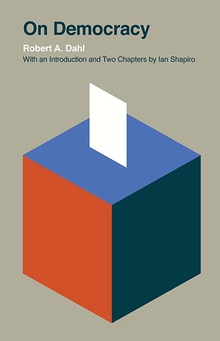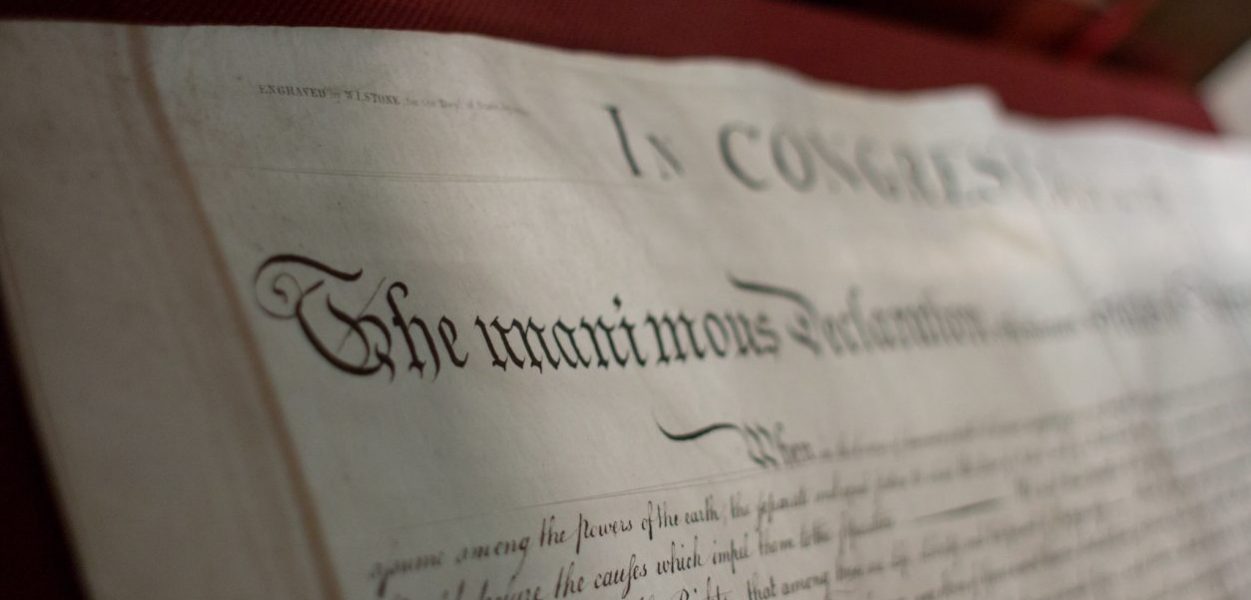Is Equality Self-Evident?
Robert A. Dahl—
In words that were to become famous throughout the world, in 1776 the authors of the American Declaration of Independence announced: “We hold these truths to be self-evident, that all men are created equal, that they are endowed by their Creator with certain inalienable Rights, that among these are Life, Liberty, and the pursuit of happiness.” If equality is self-evident then no further justification is needed. None can be found in the Declaration. Yet for most of us it is very far from self-evident that all men-and women-are created equal. If the assumption is not self-evidently true, can we reasonably justify adopting it? And if we cannot, how can we defend a process for governing that seems to assume it to be true?
Critics have often dismissed assertions about equality like that in the Declaration of Independence as nothing more than empty rhetoric. If a claim like that is supposed to state a fact about human beings, they insist, it is self-evidently false.
To the charge of falsity, critics sometimes add hypocrisy. As an example they point out that the authors of the Declaration ignored the inconvenient fact that in the new states they were now declaring independent, a preponderant majority of persons were excluded from enjoying the inalienable rights with which they were supposedly endowed by no less than their Creator. Then and long thereafter women, slaves, free Negroes, and native peoples were deprived not only of political rights but of many other “inalienable rights” essential to life, liberty, and the pursuit of happiness. Indeed, property was also an “inalienable” right, and slaves were the property of their owners. Thomas Jefferson, the principal author of the Declaration, himself owned slaves. In important respects women, too, were the property of their husbands. And a substantial number of free men-on some estimates about 40 percent-were denied the right to vote; in all the new American states the right to vote was restricted to property holders into the nineteenth century.
Neither then nor later was inequality at all peculiar to the United States. On the contrary. In the 1830s the French writer Alexis de Tocqueville concluded that in comparison with Europe one of the distinctive characteristics of the United States was the extraordinary degree of social equality among that country’s citizens.
Although many inequalities have diminished since 1776, many remain. We need only look around us to see inequalities everywhere. Inequality, not equality, appears to be the natural condition of humankind.
Thomas Jefferson was too experienced in human affairs to be unaware of the self-evident fact that in many important respects human capacities, advantages, and opportunities are not distributed equally at birth, much less after nurture, circumstance, and luck have compounded initial differences. The fifty-five men who signed the Declaration of Independence-men of practical experience, lawyers, merchants, planters-were hardly naive in their understanding of human beings. If we grant that they were neither ignorant of reality nor simply hypocritical, what could they possibly have meant by the audacious assertion that all men are created equal?
Despite so much evidence to the contrary, the idea that human beings are fundamentally equal made a great deal of sense to Jefferson, as it had to others before him like the English philosophers Thomas Hobbes and John Locke. Since Jefferson’s time many more persons throughout the world have come to accept, in some form, the idea of human equality. To many, equality is simply a fact. Thus to Alexis de Tocqueville in 1835 the increasing “equality of conditions” he observed in Europe as well as America was so striking that it was “a providential fact, and it possesses all the characteristics of a Divine decree: it is universal, it is durable, it constantly eludes all human interference, and all events as well as all men contribute to its progress.”
From On Democracy by Robert A. Dahl. Published by Yale University in 2020. Reproduced with permission.
Robert A. Dahl (1915–2014) was Sterling Professor Emeritus of Political Science at Yale University. Ian Shapiro is Sterling Professor of Political Science and Global Affairs at Yale University.
Further Reading:



























